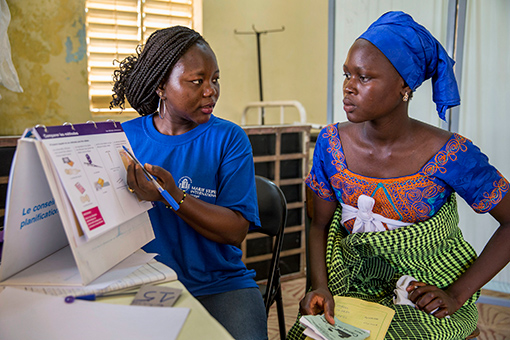News & Updates
DFID announces support for family planning projects in Africa
16 November 2018

The UK Government has announced a new £200 million programme to support family planning and contraceptives in 27 countries across Africa and Asia.
The programme, established by the Department for International Development (DFID), will increase services to young and poor women, supporting 6 million couples each year.
DFID has partnered with Marie Stopes International and International Planned Parenthood Federation (IPPF) to implement the programme.
The programme coincides with an announcement earlier this week that millions of women and girls in the world’s poorest countries by 2020 will not have access to family planning services, despite efforts to expand this.
Simon Cooke, Chief Executive of Marie Stopes International, commented:
“We and our partners will be able to bring quality sexual and reproductive health services to millions of women in some of the world’s poorest and most marginalised communities. For many, it will be their first chance to access any kind of contraception, empowering them to stay in education, forge a career, stay healthy and pursue their hopes and dreams for the future.
“With this landmark investment in women and girls, the UK government is creating the right conditions to drive multiple other areas of development.”
Efforts to increase family planning services and accessibility have increased in recent years with the launch of the Family Planning 2020 (FP2020) Global Partnership in 2012. However, issues such as stigma, gender inequality and funding have limited progress.
Dr Alvaro Bermejo, Director General, IPPF added:
“This is a significant investment and a deep commitment to putting women at the heart of healthcare. Women and girls – of all ages, places, income and education – must have access to high quality, voluntary family planning care and information.”
According to FP2020 317 million more women and girls in the world’s poorest countries are now using modern contraception and family planning services, an increase of 46 million since 2012.
The report warned that this is still short of the target to reach an extra 120 million in 69 countries by 2020.
If you’d like to stay informed on the latest updates in aid and development, please sign up for the AIDF newsletter.
Image credit: World Health Organisation